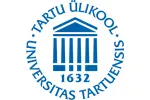About Estonian and Finno-Ugric Languages, MA - at University of Tartu
The 2-year master's programme in Estonian and Finno-Ugric Languages (EFUL) is unique in combining in-depth language learning with comprehensive, English-based studies in linguistics. We offer specialisations in either Estonian or Finno-Ugric Languages. Whichever you choose, you will have access to shared modules on theoretical and methodological aspects of synchronic and diachronic linguistics, with an emphasis on active language learning, combining theory and practice. The programme also emphasises the development of digital skills. It offers modules on computational linguistics and programming in collaboration with the University of Tartu's Centre for Digital Humanities and Information Society.
Suppose you are interested in Estonian or Finno-Ugric languages like Hungarian, Finnish or Komi, and you're looking for a master's programme in Language and Linguistics. In that case, this is the programme for you! You can begin your studies right away without first developing your language skills.
Why study Estonian and Finno-Ugric languages at the University of Tartu?
- Be in the right place! Tartu is the best place in the world to study Estonian because of the University of Tartu's excellent language teaching and because the language is alive all around you. You can soak it in and never be at a loss for places to practice with native speakers.
- Great opportunities for studying other Finno-Ugric languages: Tartu has long attracted students and scholars from other Finno-Ugric speaking areas. Languages like Finnish, Hungarian and Komi are taught by experienced native speakers. Other Finno-Ugric languages also have communities in Tartu where you can speak the language and experience the culture.
- Cutting-edge research: The University of Tartu boasts some of the top researchers in Estonian and Finno-Ugric linguistics and other related disciplines like ethnography, folklore, history and cultural studies.
- European quality with long university traditions: The University of Tartu is imbued with the sense of its illustrious history, dating to 1632. The Institute of Estonian and General Linguistics is located right beside the famous 19th-century, neoclassical Main Building of the university, the prized Toomemägi Park, and a hop, skip and a jump away from the Town Hall Square. Today's UT is equipped with state-of-the-art technology and convenience in classrooms while keeping student traditions alive, striving to combine the best of old and new.
- Academic excellence: The EFUL programme is taught in a strong academic unit with expertise in many subfields of linguistics and with connections to related departments and disciplines.
- International collaboration in research and teaching: Estonian and Finno-Ugric linguists are embedded in global networks of collaboration, giving access to leading research in the field and various opportunities for supplementary courses. For instance, students can take advantage of our many Erasmus partnerships for study abroad, and an established network of Finno-Ugric institutes organise yearly winter schools (http://copius.eu/).
- Special scholarship and stipend opportunities: In addition to four full tuition waivers, a number of scholarship and living expense stipends are available specifically for EFUL students. Specifically, merit-based scholarships are available from the Kadri, Nikolai and Gerda Rõuk Memorial Fund as well as from the Kindred Peoples’ Programme (the latter specifically for students on the Finno-Ugric language specialisation track), and are intended to cover tuition costs (4000€/year) and subsidise living costs (200€/mo. for 10 months). All applicants are automatically considered for the full tuition scholarships. A separate (but minimal) application is required for the living cost stipends; applicants will receive more information about this after submitting their EFUL application. Please note that Ukrainian citizens may still apply to EFUL until 1 June 2022, and have the opportunity to receive scholarships intended specifically for Ukrainians; more information can be found here.

